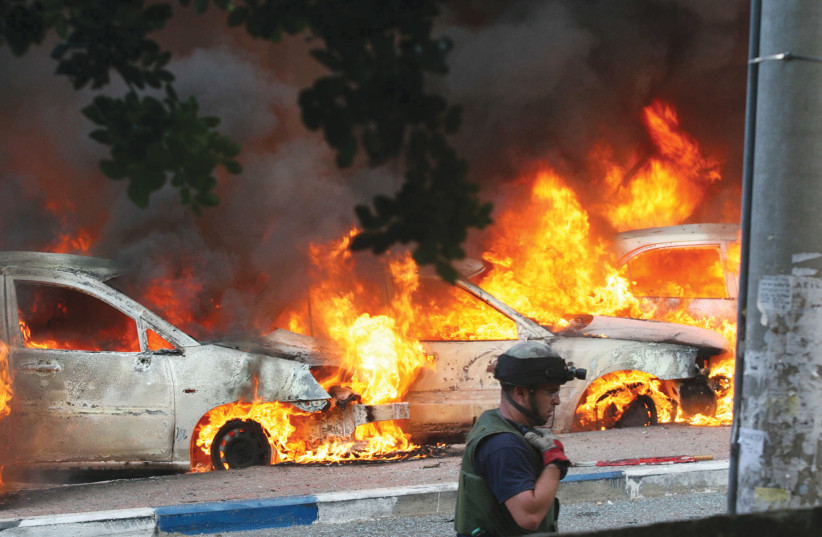A “Saudi-Zionist” plan is forming against Lebanon, and it is opposed to the true “Arabism” of the pro-Iranian resistance in Lebanon, according to Hezbollah’s Nabil Qaouk, a member of the group’s executive council. This is the usual Iranian and Hezbollah talking point, but it also reveals the obsession that Iran and its proxies have with the Gulf and the current ties that are growing between Israel, Bahrain and the UAE.
The latest screed in Iran’s Tasnim News Agency, quoting the Hezbollah member, is to claim that the Gulf countries are not “preserving” their “Arab identity” by working with Israel. This is a bit of an irony, considering that Hezbollah works for Iran, which is a non-Arab country.
“We call on Saudi Arabia to preserve its Arab identity and not to lose its Arabness in the alliance with the Israeli enemy,” Qaouk said. He accused Saudi Arabia of joining an upcoming US-led military drill that includes Israel. “The joint military exercise of Saudi Arabia, the UAE and Bahrain with Israel has removed the mask of false Arabism,” he said.
The attack on Saudi Arabia by the Hezbollah operative in his speech is one of the first prominent references in pro-Iran media to a large US-led naval exercise dubbed the International Maritime Exercise 2022 (IMX 22), which includes approximately 60 countries.
While Israel is taking part, there will also be countries that do not have relations with Israel, such as Saudi Arabia and Oman, according to Al Jazeera. Defense Minister Benny Gantz was recently in Bahrain, and Israel, the UAE and Bahrain took part in a naval drill with the US last year.

“The participation of Saudi Arabia, the UAE and Bahrain in this exercise, along with the Zionist regime, is a dagger in the back of the Palestinian people and the heart of Jerusalem and a threat to Arab national security, and Lebanon is among the victims,” Qaouk said.
How is Lebanon, which receives US support, a “victim”? The Hezbollah operative claimed it is because Lebanon is “in a position to confront the Zionist enemy.”
Qaouk also slammed Gantz’s visit to Bahrain and the signing of an agreement there. It was a “betrayal of all Arabs,” he said. The “Americans, the Saudis and the Emirati people are directly and shamelessly interfering in the Lebanese elections, financing and managing campaigns and even entering the level of election slogans in Lebanon and pursuing only one goal,” he added.
Last October, Saudi Arabia, the UAE, Kuwait and Bahrain pulled their ambassadors from Lebanon after a Lebanese official appeared to support the Iranian-backed Houthis. The Houthis have attacked Saudi Arabia and the UAE.
Saudi Arabia has historically played a role in Lebanon, helping end the civil war in the 1980s and backing key Sunni families in Lebanon, such as forming close ties with the Hariris. Hezbollah murdered former Lebanese prime minister Rafic Hariri in 2005.
The Hezbollah member bashed the Saudis for intervening in Lebanon and claimed that they and other Gulf states had tried to overthrow the Syrian regime. Regarding the Saudi war in Yemen, he said: “Their bets on political, economic and financial sanctions against Hezbollah have also failed, but they do not learn from these experiences.”
Qaouk claimed Hezbollah is more popular this year than at any previous time. He accused foreign embassies of spending money against Hezbollah, an apparent reference to the US Embassy in Lebanon. There was also a reference in the article to Gantz sanctioning companies that support Hezbollah’s missile project.
